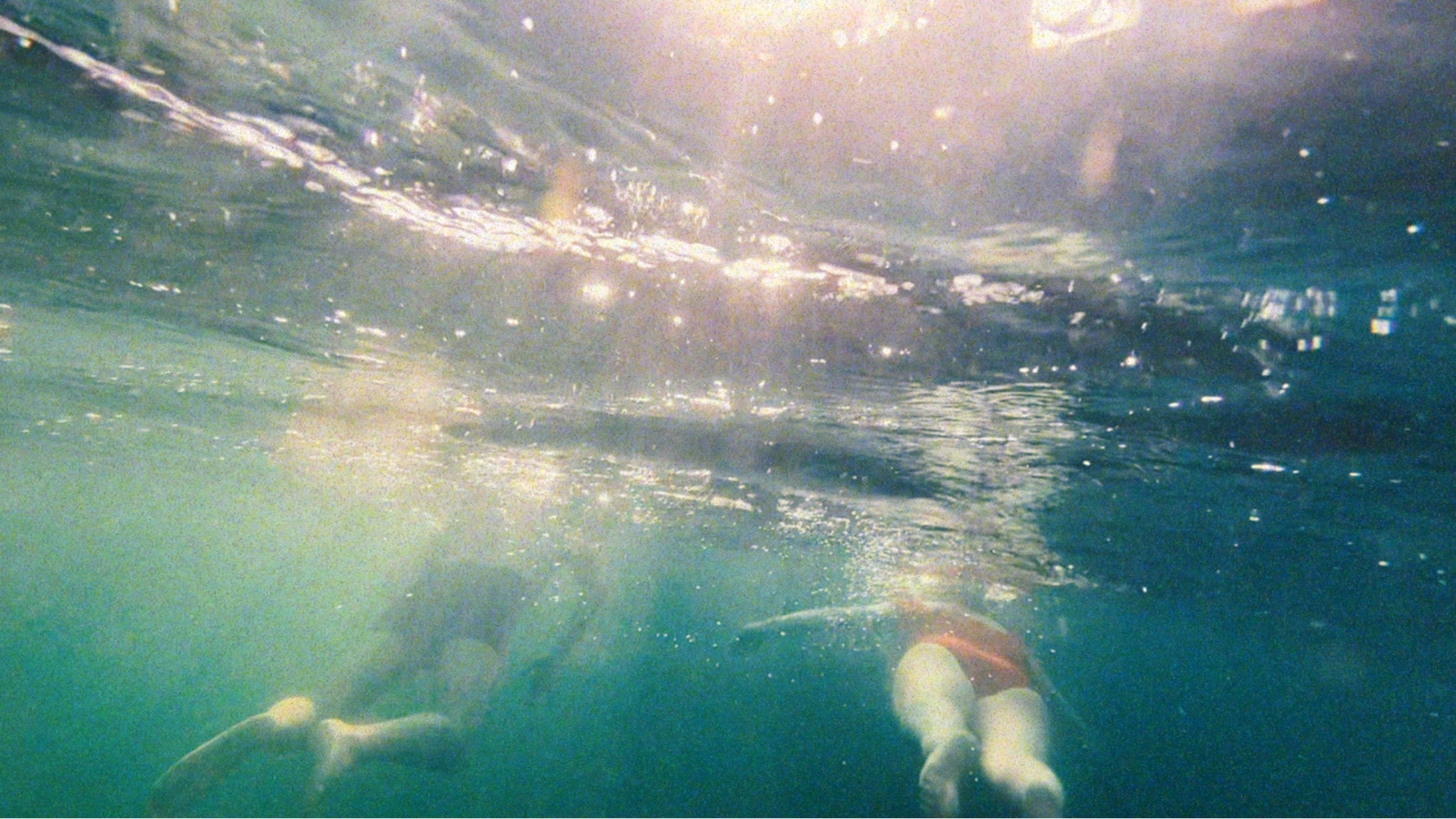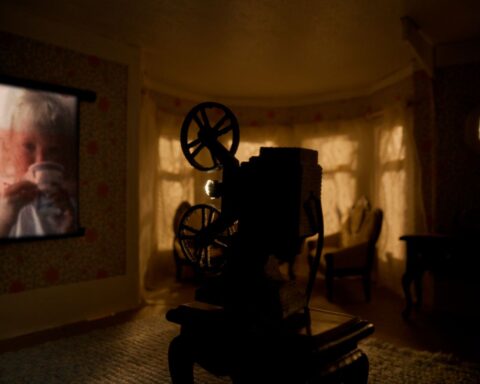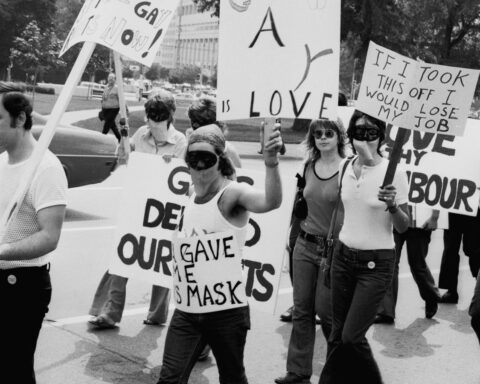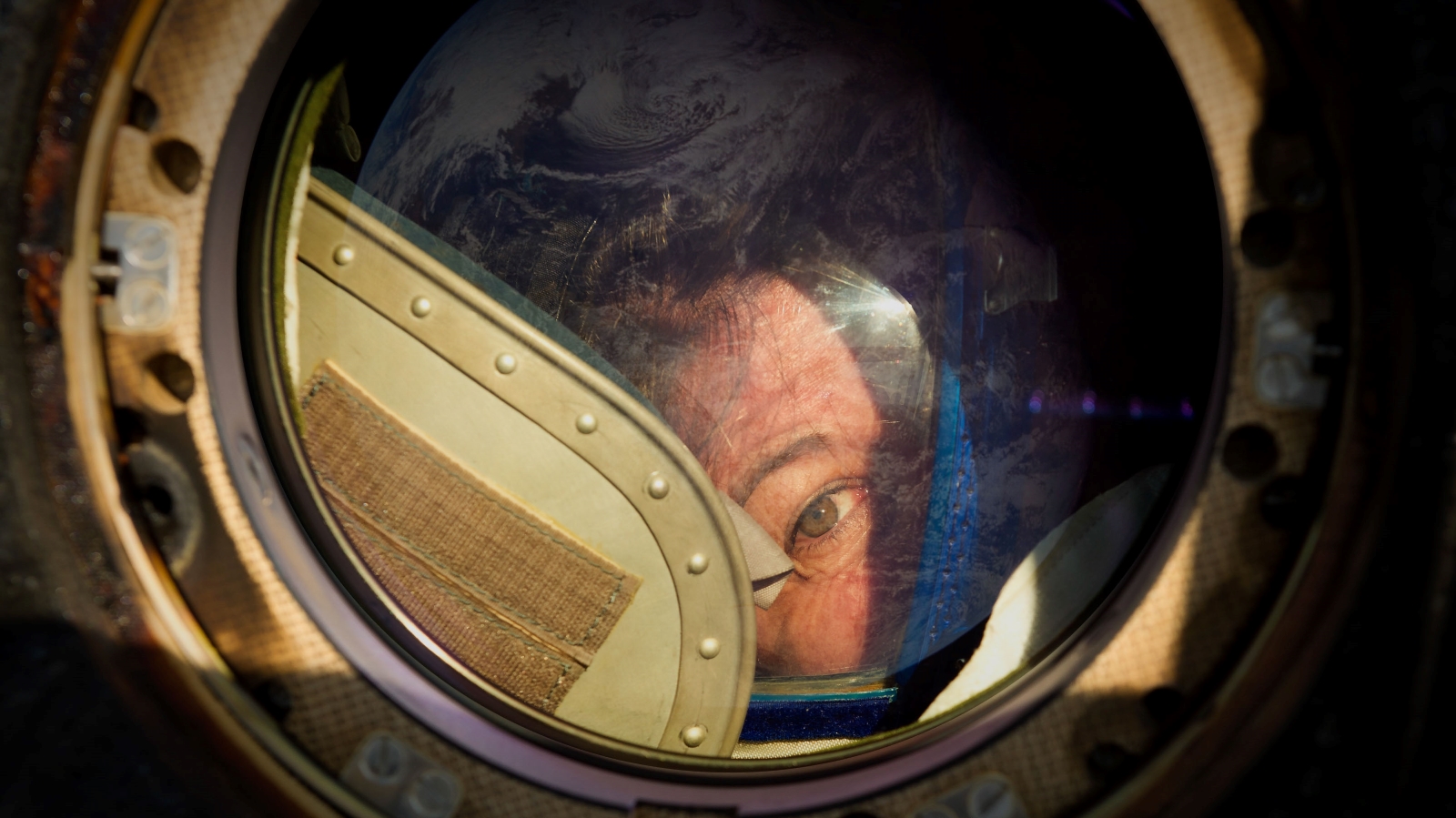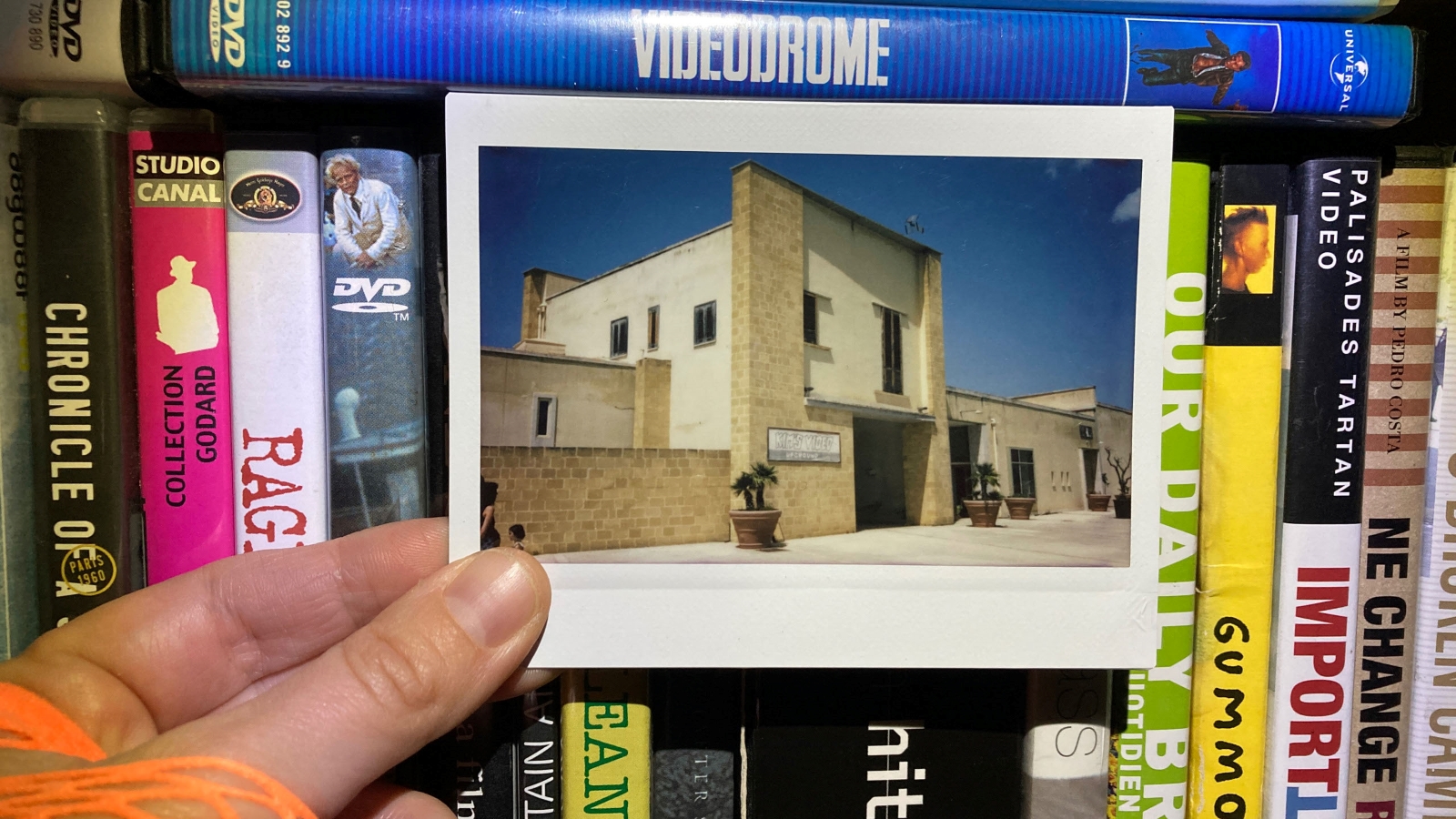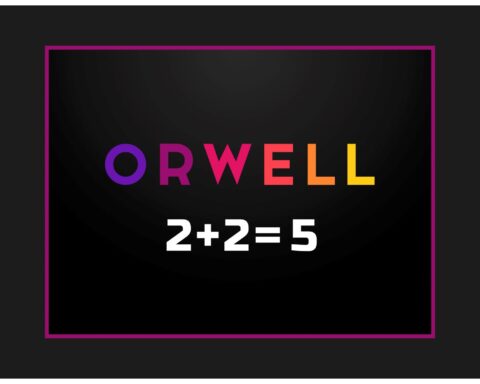The six films screening virtually in the Sundance Documentary Short Film Program artfully explore intersections of identity and belonging. (A seventh film, Under G-d, is screening at the festival but access was prohibited in the virtual format.) Featuring three films from the USA and three international docs, the Sundance non-fiction works are character-driven portraits told in a half-dozen unique voices.
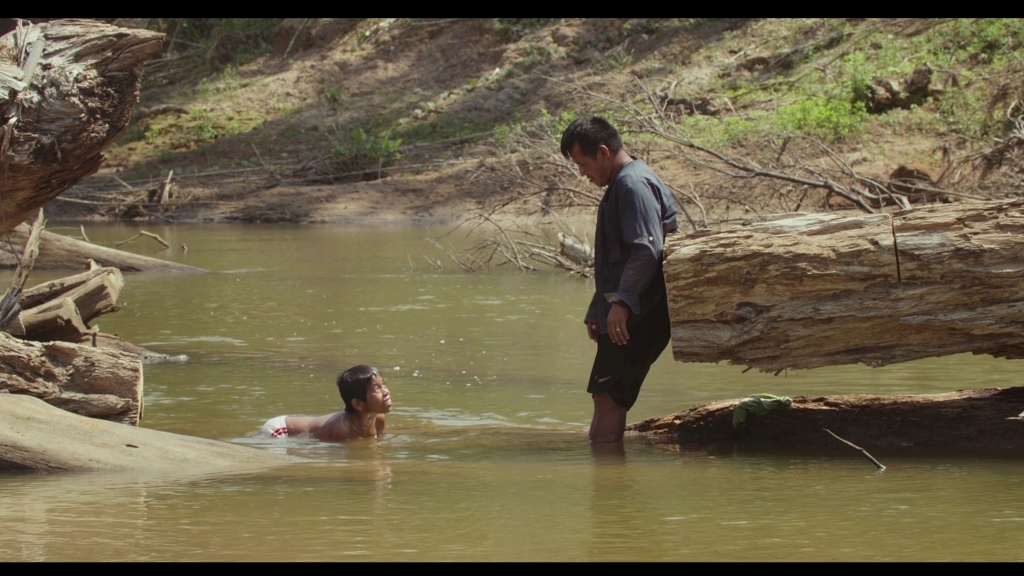
Shirampari: Legacies of the River (Peru, 15 min.), for example, observes longstanding traditions threatened by development. Director Lucía Flórez takes audiences to the Yurúa region of the Peruvian Amazon where Ricky, a young Ashéninka boy, embarks on a rite-of-passage. His task is to catch a giant catfish with nothing but a hook, guidance, and gumption. Ricky draws upon the teachings of his father Alindo to catch the fish that is bigger than most men. This objective portrait of life in the Amazon shows the practices that risk disappearing as construction for a massive highway aims to disrupt the ecosystems and communities in its wake. Shirampari: Legacies of the River offers a touching slice-of-life portrait that tragically seems destined to become a time capsule.
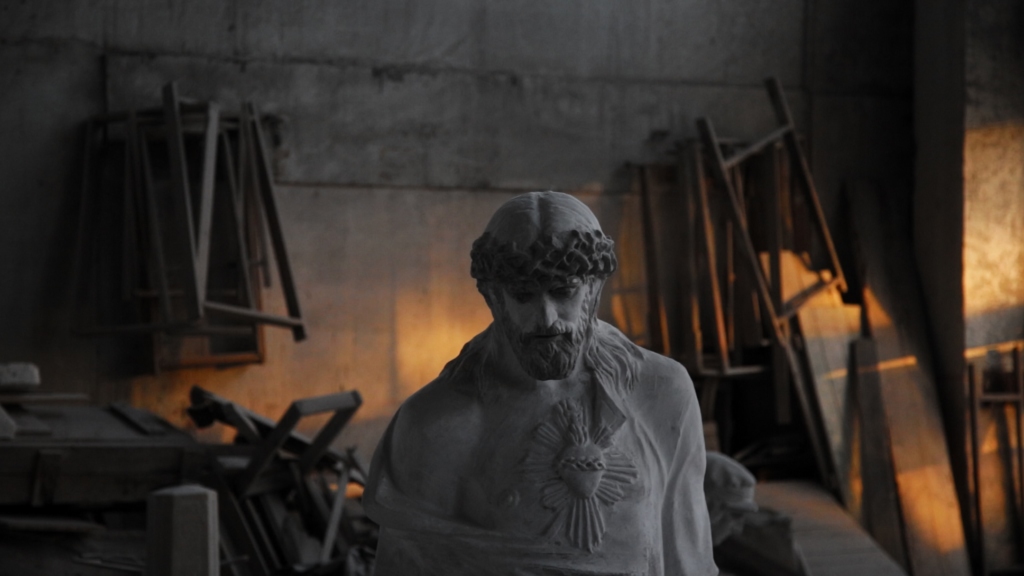
Meanwhile, director Dmytro Sukholytkyy-Sobchuk delivers an observant snapshot of the war in Ukraine with Liturgy of Anti-Tank Obstacles (USA/Ukraine, 12 min.). There’s barely a word to be heard in this film, but the stillness and silence speak volumes. Liturgy captures the muscles of Ukrainian sculptors as they lend their skills to the war effort. The film watches as they chisel away at religious icons. They make the moulds, smooth in the raw materials, press them, shape them, and perfect them.
The artisans then join efforts with the local military to erect the statues not in city squares or churches, but in the countryside. Interspersed with large metal barriers meant to block the paths of tanks and military vehicles, the religious statues offer a novel line of defense. They underscore the great sins of the Russia’s invasion. If Russian soldiers want to overtake the countryside en route to committing murder, they must blasphemously topple the statues. For the bleakness of the situation, though, Sukholytkyy-Sobchuk delivers the tale with just the right touch as the icons manage to inspire citizens in the unlikeliest of circumstances.
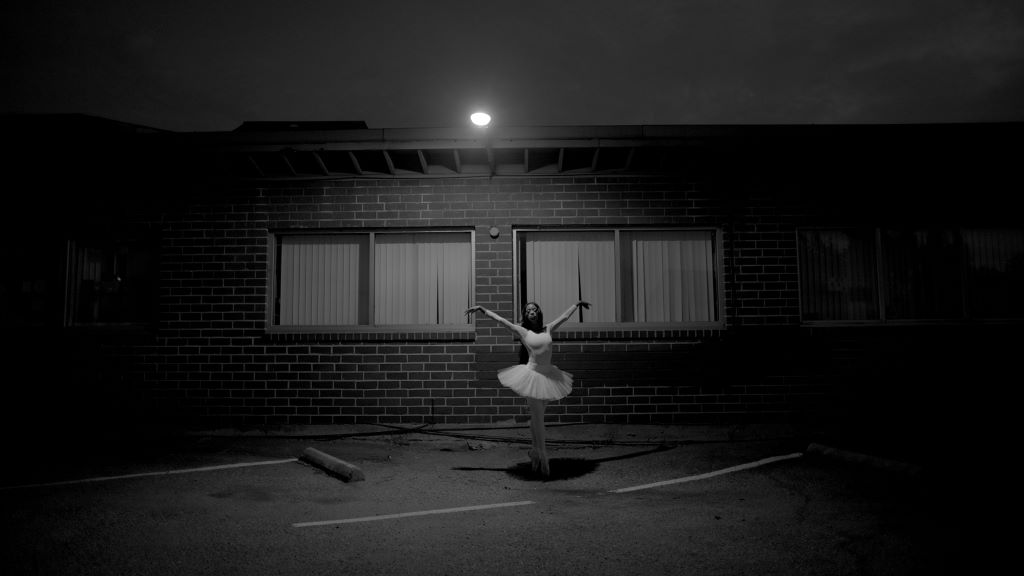
Art and creative expression are further explored in Kylie (USA, 5 min.) from director Sterling “Master Sterling” Hampton. Los Angeles based ballerina Kylie Jefferson flexes her muscles and shares her experience as a Black dancer in a predominantly white field. As Hampton captures Jefferson’s form and technique in stark black-and-white, Jefferson reflects upon the double standards she encounters as a Black ballerina. She considers issues of body type and weight, but also culturally specific factors, like how she wears her hair, which works against her in an artistic practice with a very fixed and outdated idea of beauty and perfection. Kylie gives her a worthy stage that is as celebratory as it is elegiac. For all the talent on display in the film, Hampton asks why the ballet world can’t afford Jefferson a similar stage.
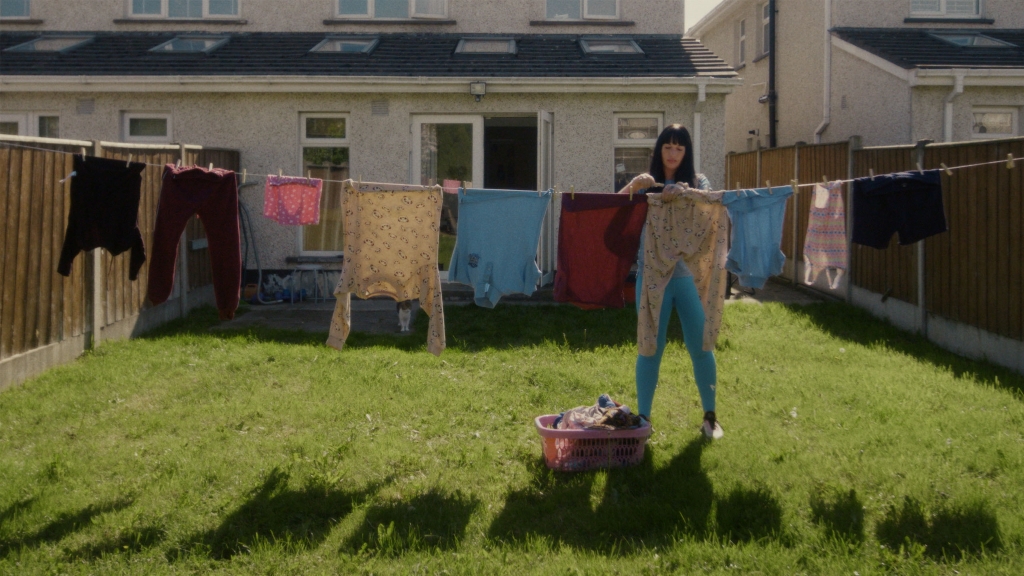
The series also features three films that tackle very different aspects of motherhood. A great sense of humour and an even bigger heart fuel the amiable character piece Call Me Mommy (Ireland, 15 min.). Call Me Mommy affords audiences a behind-the-scenes view of 40-year-old online sex worker and mother Sinéad. The film gives a frank, funny, and clear-eyed study of the roles Sinéad juggles. With a few kids, four dogs, a cat, and a loyal audience on Only Fans, Sinéad has her hands full. Director Tara O’Callaghan observes Sinéad’s daily rituals matter-of-factly. Sinéad hangs laundry. She takes the kids to school. And she masturbates furiously before her smartphone while the cat sleeps at her feet.
However, O’Callaghan smartly deconstructs any preconceptions that viewers may bring about the relationship between sex work, motherhood, and domestic life. In fifteen economical minutes, Call Me Mommy poignantly navigates Sinéad’s own journey with domestic violence and a distant mother. It’s a portrait of a mother’s love, pure and simple.
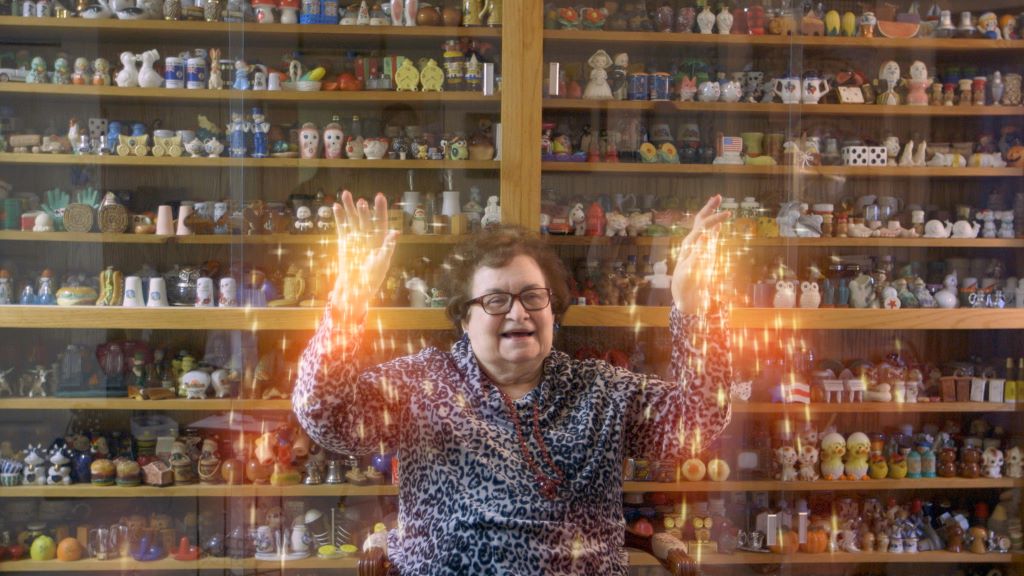
Meanwhile, in Margie Soudek’s Salt and Pepper Shakers (USA, 12 min), director Meredith Moore profiles her grandmother, Margie. The film has a wonderfully offbeat sense of humour as Moore wheels Margie before a greenscreen and invites her to unpack her lifelong obsession for collecting salt and pepper shakers. The two generations of women pick through Margie’s collection and learn the stories behind shakers (even naughty ones!) of all shapes and sizes. But Moore sharply illustrates how our elders’ offbeat personalities inform our own. The film punctuates Margie’s story with Moore’s work as a filmmaker as she teaches post-production techniques to her students. She uses her grandmother’s testimony as a working sheet, and invites collaborators to lob bombs at Margie as she pursues salt and pepper shakers. The film rightly elevates Margie to superhero status with some fun razzle-dazzle.
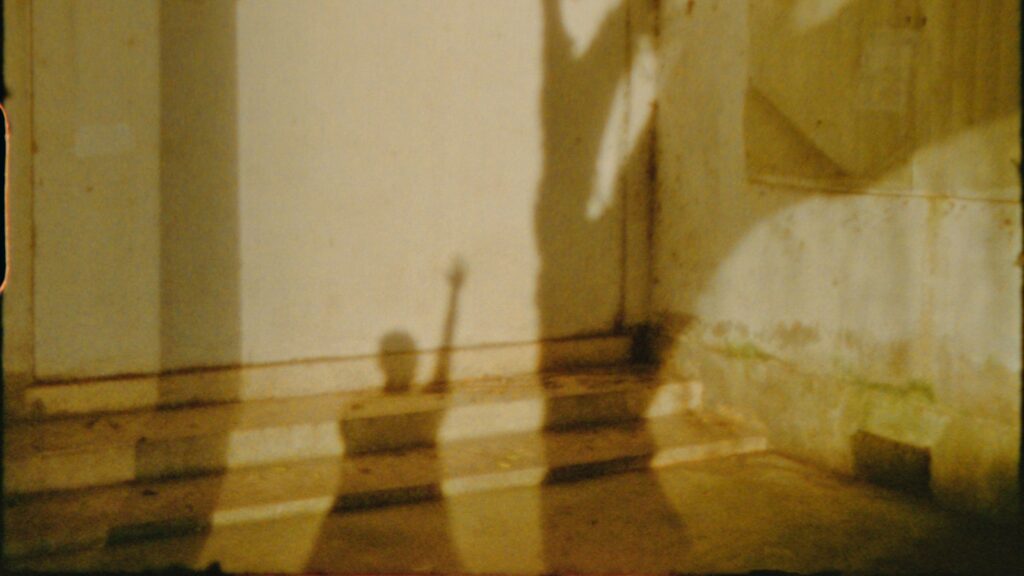
The winner of the Sundance short docs, though, is Shuli Huang’s masterfully poetic Will You Look at Me (China, 20 min.). The film, which won the Queer Palm at Cannes, offers an exploration of the filmmaker’s relationship with his mother. Shuli has a natural eye behind the camera. Quotidian images offer touching acts of love. For example, the film shares images of Shuli’s mother tending to her garden while complaining that her son merely wastes his film by recording her. By keeping the camera rolling, though, her son illustrates the value these images hold for him.
Shuli also reflects upon his estrangement with his mother, particularly while coming of age as a gay man. Fleeting images reveal a boyfriend he had for years. Voiceover narration tells how his mother met the lover briefly when she visited and he slept on the couch under the guise of a roommate.
However, as Shuli dexterously blends images of his parents’ own intimacy that they hid from him, Will You Look at Me performs a delicate dance of love and heartache as the mother shares her feelings of shame and betrayal. The film admirably confronts the burden that queer people face, particularly in traditional cultures, while seeking love and acceptance from parents who believe they’ve failed because their kids simply turned out as they are. This cinematic essay is personal filmmaking at its barest and finest. The images are elusive yet there’s great vulnerability to behold when one sees the motifs that connect the stories and perspectives. Shuli lays himself bare in Will You Look at Me. In doing so, a true filmmaker is born.
The 2023 Sundance Film Festival runs through Jan. 29.
Will You Look at Me also screens virtually at the ReFrame Film Festival Jan. 26 – Feb. 3.




